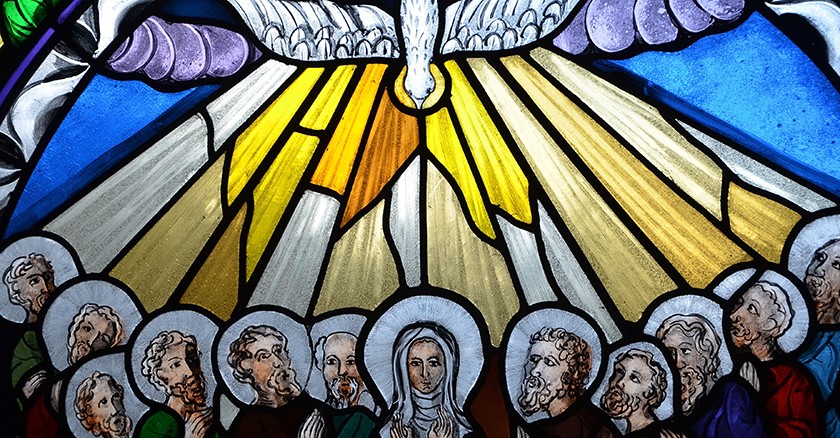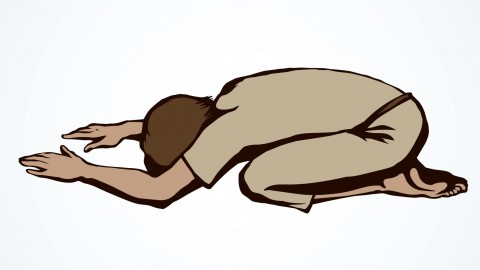20 November 2022

Today we join billions of Christians around the world in celebrating the Feast of Christ the King, which marks the end of the liturgical year. We all have different questions about Christianity and our faith, but I hope that today at least we will have a glimpse of the end, which is good.
We fight battles in life and hold onto our faith in the strength and mercy of God. Today we lay down our crowns before the altar and say, “Lord, we have fought the good fight of faith. We could not have done it without You: We fight under Your banner, and the strength we have is because of Your mercy and grace. We attribute all the glory and praise to You, not to us.” It will be a glorious celebration: God will visit us, and in some sense, we will be in heaven.
The Church celebrates the life of Christ through a three-year liturgical cycle, proclaiming the Gospel to us and to the world so that we will never forget what Christ has done. Sometimes we forget our focus, purpose, and meaning in life and what we are here for, and the Church through her celebrations reminds us constantly so we will never forget.
The word, “kingdom” is rarely used in modern times, but has mostly been replaced by “country” or “republic”. The closest may be the existence of monarchies, loved on one side and loathed on the other. When we hear the word, “kingdom”, or “monarchy”, perhaps what comes to mind is power and prestige, honour given by the kingdom’s subjects, and heirs sitting on unimaginable wealth. Some may say, “I wish I had their luck”; but they also have troubles, such as being chased by paparazzi.
The foolishness of the cross
Today’s Gospel is the story of events that took place during Jesus’ crucifixion. The Jewish rulers and religious leaders mocked Him, followed by the soldiers and the mob. There was an inscription above the cross, which usually described the charges against the person. While all these things were happening, Jesus had pity on the women of Jerusalem, and prayed,
“Forgive them, for they don’t know what they’re doing”.
On the cross, Jesus was flanked by two robbers or thieves; one was repentant, the other unrepentant. The repentant thief is named Dismas (in some languages and translations, Demas). The unrepentant thief joined the rulers, soldiers, and the mob, insulting Jesus:
“Are you not the Christ? You’ve claimed to be the Christ. Now you’re in trouble, why don’t you prove to the world that you are the Christ by saving yourself?”
Dismas turned to him and said,
“Don’t you fear God? Don’t you have any sense? Don’t you realize that we are here because of our own doing? This man is being executed and will die, but he is innocent.”
Luke chapter 23 contains two sets of threes. One set is the pronouncements of Jesus’ innocence. The first pronouncement was when Pilate said,
“I find no fault in this man concerning those things of which you accuse him”.[i]
In essence he was saying “You are fighting about religious matters, and this case has no merit according to Roman law”. The third pronouncement was by a Roman centurion:
“Certainly this was a righteous man”.[ii]
It was the repentant thief who uttered the second pronouncement of Jesus’ innocence.
On the other side, three blasphemies, or insults thrown at Christ, are recounted: from the Jewish rulers, the soldiers, and the unrepentant thief. They questioned God’s ability to save mankind:
“If you are the Christ, why don’t you save yourself? You helped and healed others and resurrected people from the dead; why can’t you do it for yourself?”
The essence of their question was, “Does God have the ability to save?” There’s a difference between “I can” and “I will”; I might have the ability to help a person, but I may not be willing to do so. When Jesus was in the wilderness, someone said,
“If you are the Son of God, turn these stones into bread.”
This was the precedent for those who mocked Jesus. Beneath these blasphemies were the words of the enemy; they were puppets under diabolical influence, and even on the cross Jesus was being attacked left and right.
The cross is the means of human salvation, but for the world it’s foolishness – although the psalmist says that fools say there is no God.[iii] As Dismas defended Jesus to the unrepentant thief, today you and I must defend the cross. On the cross lies our eternal destiny, and it provokes two opposite reactions: One thief insulted Jesus; the other defended Him.
Open your heart
After defending Jesus, Dismas says,
“Remember me in Your Kingdom”.
Where did Dismas get the idea that Jesus has a Kingdom? Had he studied under a rabbi who understood this? He was pointing to the fact that Jesus must be King. Was Dismas a bad person who in the beginning joined the crowd in jeering at Christ, or was he a good man who had fallen into bad things? At some point, Dismas had a change of heart, and realized and seized his last opportunity for repentance. But what brought about this change of heart?
There were many people who experienced the presence of God and heard the words of Christ, but whose lives were not changed. When we hear the Word of God on Sundays, how many of our lives are changed? Does the Gospel change our lives, like Dismas? Have we lost the understanding of the power of what we do every Sunday, and are some people’s hearts closed, whilst others are open to God’s Word which brings transformation in their lives?
When Dismas was defending Jesus to the unrepentant thief, he asked,
“Don’t you fear God?”
The fear of God is the beginning of wisdom, and it led Dismas to make the wisest decision of his life. We are here because of our reverence for God, because we’re recipients of things God has done that we don’t deserve. Although his life was messed up until this point, which led to his execution, at this point he acknowledged Jesus as King and God, the wisest thing he had said and done.
God remembers the penitent
Dismas also appealed to the mercy of God:
“Remember me”.
Joseph was in prison and was forgotten, although he said to the butler and the baker, “Remember me when you meet the king”.[iv] Jesus did not forget Dismas; after he had appealed for mercy to be remembered in His Kingdom, Jesus said,
“You will be with Me in Paradise” –
quite a surprising reward to a thief who repented at the last moment. We can only say that God is very generous. Dismas must have done something bad enough to be executed, or have stolen many things. God did not reward Dismas for the bad things he’d done, but for his repentance and humility.
Dismas represents the Church. We come before the altar of the Lord every Sunday, as it were at the foot of the cross, and acknowledge God for His mercy. We confess our sins, but we know we will fall again unintentionally. We come to church, fall at Christ’s feet, and say, “Lord, have mercy and remember me.”
The promise of His Kingdom
This word, “remember” is also used in the Eucharistic Prayer:
“Do this in remembrance of Me”.
We remember Christ as our Saviour, and God remembers us, that He will give us His Kingdom. You don’t have to be a monarch to have a kingdom, but God intended you to be part of His Kingdom, and will give you a Kingdom with no end, which is better than the kingdoms of the world. We come and say,
“Jesus, remember Me”;
and God never forgets you. When Jesus was on the cross, you were in His heart – and before you were born. Even if you had been only person in the world, Jesus would have died in the same way, because you are precious in God’s sight.
He died not only to free us and save us, but to reward us with a Kingdom; and it takes a narrow road of humility and repentance for you to enter, and a point of change when you say, “I’m no longer going to be king in my kingdom, but I’m going to let Jesus be the Lord of my life”. That’s a decision you have to make, then your reward is Jesus’ promise: “You will be with Me in My Kingdom”. It only takes simple humility and repentance – which is not a one-time but a lifetime event. I’m a descendant of Adam who rebelled against God; every day I have the temptation to rebel against God and do my own thing, and I want to be the king in my own kingdom. We’re all humans; we only want to do what we want. But we must realise that it is better to be a servant in the Kingdom of God than king in our own kingdom.
Thanks to be God that He doesn’t treat as servants but as His family and children. We celebrate the Kingdom God promised here and now. Beyond a ritual, we celebrate because there’s a Kingdom that we’re a part of, and although you can take yourself away from it, it will never be taken away from you.
If you’ve never made Jesus the King of your life, this might be the opportunity, like Dismas. Or you may have given your life to Him but then taken it back. Some people respond many times to altar calls but then take their life back and have to give it again the next Sunday, until eventually they become tired and say, “Once and for all I’m giving my life to You”. Others do it on an instalment basis, but there is interest; don’t take that route. Give your life once and for all, and your life will be changed, like Dismas. We all have a past, but God doesn’t count our sins – He gives us a new beginning. Even when we’re unfaithful, God remains faithful. It’s not only a Kingdom that He will give us at the end of time, but we can experience His Kingdom in our lives today.
Lord Jesus, I sincerely open my heart to You. Thank You for my Baptism that gave me new life. Today I take hold of that new life in me, to live a life where You are King and Lord over my life; I am Your servant. Thank You for giving me Your Kingdom; thank You for dying for my sins, that I may enter Your Kingdom, not as a slave but as a child of God. Today I rejoice; thank You for this wonderful opportunity. In the name of the Father, the Son, and the Holy Spirit. Amen.
If you respond to this message, your life will never be the same again. You will see God work in a supernatural way, and You’ll fall in love with God as never before, because You experienced His love. It doesn’t have anything to do with the past, but you’ve received God’s gift to you. Never let it anyone take it away from you.
In some of our churches, because it’s the last Sunday of the year, we recall the blessings of the year. We ask, “How can I thank God for everything He has done for me the past year?” and bring Him a token of our gratitude, love, and devotion.
As the liturgical year ends, it has prepared us for the year to come. Let us enter the new year with great anticipation.
Study questions:
- Could God have saved Jesus from dying on the cross? Could Jesus have saved Himself? Why did neither of them do so? Can He save you in your greatest need, and what would that mean?
- Can you defend the cross when others question it? This also applies to the principle of denying oneself and taking up one’s cross: Is it foolishness, or the way of salvation? Can you defend doing so when others question it or when you are tempted to question it?
- When and how is the idea of saving yourself a temptation from the devil? How does the temptation to turn stones into bread apply to you today? Have you learned to recognize and resist it?
- Is your heart open to listen and obey God’s Word, especially during worship? Do His Word and presence transform your life? If not, how do you need to change so that this can happen?
- Do you fear (revere) God? How has this influenced your attitude towards the cross and your need for transformation?
- Do you approach God and go to church with the attitude of deserving a reward, or appealing to His mercy? Should we expect God to reward us, or not? In what sense, and for what?
- Do you think it is better to be a servant in God’s Kingdom, or king in your own kingdom, and why? How has this played out in your personal experience? Who is king in your life – you or Jesus?
- To what extent have you given your life to Jesus as the King? What is keeping you from doing so more fully, and what is God calling you to do about it?
[i] Luke 23:14
[ii] Luke 23:47
[iii] Psalm 14:1
[iv] Genesis 40









